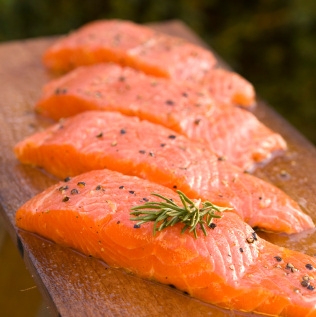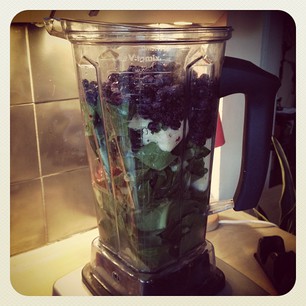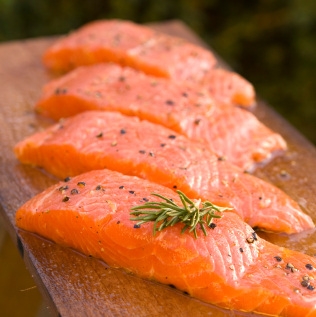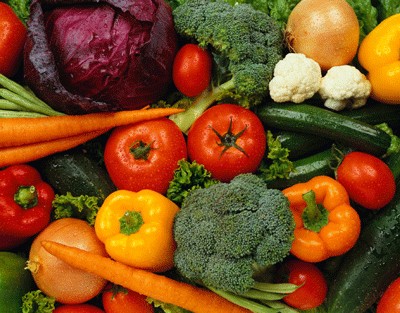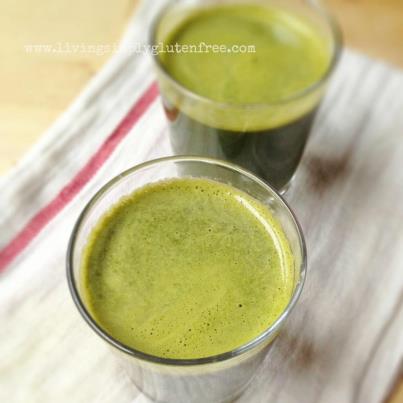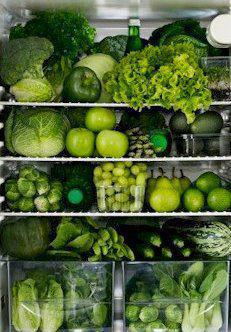This is the last installment of my IBS diet series. If you missed the first three parts, they are here, here and here.
In this article, I’ll cover less popular approaches to healing IBS with diet but since these approaches have worked for some people, I thought they were worth mentioning.
Finding the right healing diet is a process of experimentation. Different approaches work for different people because we are not all built the same. I will discuss the Ayurvedic approach to healing, which customizes healing plans based on body type.
The Ayurvedic approach to diet looks at metabolic body typing to determine which foods are best for whom.
I’ll also discuss the raw food diet, despite my negative personal experience with it, because this approach has worked for others. Ayurvedic theory sheds light on why it’s the case.
Elemental diet
The elemental diet is a liquid diet that is used to treat patients, with ulcerative colitis and Chrons disease, who have trouble absorbing nutrients from solid food due to inflammation. This approach is used in hospitals to feed people through tubes, but we’re discussing the at home version of this diet.
I learned about the elemental diet from Jini Patel from Listen-to-Your-Gut.com. She healed her severe ulcerative colitis diagnosis with diet and natural medicine and now teaches others to do the same.
She believes that IBS, ulcerative colitis, and Chrons disease are not separate illnesses, but rather just a continuum of digestive imbalance. She believes IBS is the most mild version of digestive illness and if left untreated it can progress into ulcerative colitis and Chrons.
The elemental diet is also used to treat small intestinal bacterial overgrowth (SIBO), which is considered a leading cause of IBS by some experts.
A semi-elemental approach to healing digestion simply entails breaking food down by soaking, cooking or blending it. Pureed veggies, soups and smoothies are an example of foods that are less work for the body to break down and digest.
This approach works best for people who can’t absorb solid food, want to add easy-to-absorb calories to their diet, or have issues with bowel inflammation.
Anti inflammatory diet
This diet aims to ease inflammation with anti-inflammatory foods. Again, it’s more popular with people who have ulcerative colitis and Chrons, but it’s theorized that people with IBS also have some level of intestinal inflammation from food sensitivities, leaky gut or chronic stress.
The anti inflammatory diet most resembles the Mediterranean diet, which is considered one of the healthiest in the world. The cornerstone of this diet is inflammation fighting fats such as omega-3 fatty acids, found in fish, hemp seeds and flax seeds.
Other anti-inflammatory fats include extra-virgin olive oil, avocado oil and walnut oil. Bad, inflammatory oils include omega-6-rich safflower, sunflower, peanut, and soybean.
There is no surprise that fruits and veggies are emphasized on this diet for their anti-inflammatory properties, particularly onions, garlic, peppers and dark leafy greens. Spices, like cayenne pepper, are especially powerful anti inflammatory agents, as are tumeric, ginger, and green tea.
Ironically, most doctors tell IBS patients to stay away from spicy foods and fats, while in reality these foods may calm the inflammation contributing to the problem.
Yogurt and fish are the main sources of protein for the anti inflammatory diet but small amounts of organic, unprocessed animal protein is acceptable.
What makes the anti inflammatory diet so powerful is its emphasizes on cooking from scratch with real foods. This cuts out extra sugar and chemicals found in processed, packaged foods. For people who don’t have multiple foods allergies, and only mild IBS symptoms, the anti inflammatory diet may be a promising option.
Ayurvedic diet
Ayurveda is the ancient medical system of India. It explains why one-size fits all approaches to diet and healing are ludicrous.
Ayurveda breaks people into “doshas” or what we call metabolic types.
There is Vata, Pitta and Kapha, which respectively represent the elements of air, fire and earth. People tend to have a dominant metabolic type but can also have balancing elements from other types.
What has always fascinated me about Ayurveda is the Vata dosha. This dosha describes people who are prone to anxiety and digestive disorders.
I’m Vata dominant, with a bit of Pitta. I’m guessing most IBS sufferers tend towards Vata dominance. You can determine your dominant dosha by taking the this test.
The properties of each metabolic type can be balanced with specific foods. Vata run dry and cold so its best balanced by oily, warm foods and unbalanced by cold, raw foods. When Vatas eat salads they should drench them in healthy oil. Vatas tend towards constipation and are active, creative and fearful. They tend to have cold hands and feet.
Pittas on the other hand run hot and like spicy, heating foods, but are balanced by cooling, raw foods like cucumber, watermelon and avocado. Pittas tend to have issues with heated tempers and are prone to developing ulcers.
Kaphas are the steady, grounded slow moving types that are least likely to have digestive issues. They are best balanced by eating light, warm, and spicy foods like ginger and lemon. Kaphas are unbalanced by too much heavy fats and oils and as well as processed sugar.
Ayurveda also offers suggestions for balancing doshas with herbs and lifestyle habits. Dietary recommendations also shift based on the season. For example, Vatas tend to get more unbalanced in the winter because of the cold, dry weather and need even more warming, heavy foods in the winter.
Raw food diet
I was on the raw food diet for more than 6 months and my digestive health worsened, causing symptoms of nausea from the nut-heavy fare.
The raw food diet is a vegan diet that does not allow grains or foods that are heated above 104 degrees. Protein is often derived from nuts and seeds on this diet. Since I had an intolerance to nuts this was pretty much the worst diets I could have gone on.
While it is touted as cleansing and healing, this diet is very hard for Vata-dominant types and much beter for Pittas. It also takes a lot of work to digest raw vegetables and people with weak digestion may not fare well on this diet.
That said, this approach has healed a small percentage of people with IBS. I watched a YouTube video with testimonials from people who healed IBS with raw food.
While this was the opposite of my experience I believe raw food worked for them because of its detoxifying, inflammation-taming nature. These people had the digestive fire to handle digesting raw food. I didn’t.
So this explains why the raw or Paleo diet that worked for a friend, might not work for you. The key is finding the diet that works best with your body type and addresses the underlying issue of the imbalance.
Juice fasting
I did a few juice fasts when I was trying to heal myself from IBS and it never went well for me. I would get insanely cold, cranky and worst yet, it didn’t help my symptoms. It’s great that juicing, green juice and juice fasts are gaining in popularity but no one talks about the other side of the story.
The other side of the story…
Like the raw diet, this healing approach can be intensely detoxifying, especially if you’re only drinking juice and eating nothing at all.
When the body is imbalanced by weak digestion there’ can also be issues with mineral deficiency, particularly zinc and magnesium. When the toxins are released by juice fasting they are escorted out of the body by minerals that bind to the toxins.
This can cause further deplete the body’s mineral reserves.
Detoxifying is stressful for the body as toxins flood the system, causing flu-like detox symptoms, dizziness or nausea. If the liver is congested and detox pathways are sluggish, the body will struggle to get rid of these extra toxins, especially if constipation is an issue.
I believe that juice fasting can be an appropriate cleansing mechanism for people who don’t suffer from digestive issues.
However, adding green vegetable juice to your diet, without fasting on it, could be a beneficial way to increase nutrient absorption for people who have issues with fiber intolerance.
Liver cleansing diet
The liver is one of the most overlooked organs in today’s digestive health discussion. The liver is an important part of the digestive and metabolic systems and has many important roles such as purifying blood, processing hormones like estrogen and digesting fats.
I believe that when people are intolerant to fats, it’s because their liver is compromised and struggling. Few people in the Western medical world focus on healing, detoxing and supporting the liver, while Chinese medicine practically revolves around the condition of the liver.
Things that congest the liver are alcohol, prescription medications, street drugs, caffeine, processed oils, pesticides, chemicals in processed foods, environmental toxins, sugar and impure drinking water. Reducing these stresses on the liver by drinking filtered water, eating organic whole foods and limiting pharmaceutical use will improve liver health.
To support liver detoxification and recovery I recommend lemon juice/lemon water, bitter green veggies, green supplements like chlorella, and herbs like dandelion tea, milk thistle and burdock root. Daikon radish is also extremely healing for the liver.
The last part of a liver cleansing diet is probably the hardest for most people.
According to Chinese medicine, the liver is compromised by nonstop activity and lack of rest. So resting is an important part of liver restoration. Acupuncture is another way to rebalance a compromised liver.
The nutritionist who healed me believed in the liver-healing power of red meat because of it’s blood sugar balancing, zinc-rich, organ rebuilding properties.
Sugar is one of the worst foods for liver health because it has the same insulin-spiking, fat depositing effects on the liver as alcohol. In fact, excess sugar consumption can cause liver cirrhosis.
Lastly, I believe that PMS is a symptom of a congested liver. Many women have IBS flare ups right before their cycle and I believe it has to do with the liver’s inability to filter the high levels of estrogen in the blood. Cleansing the liver can bring relief to symptoms of PMS as well as digestive problems.
I hope you learned things from this comprehensive dietary series to help you find the right healing diet to brings balance to your body.
Let me know in the comments below if you learned anything new or surprising by reading this series.
And as always, happy healing trails.

